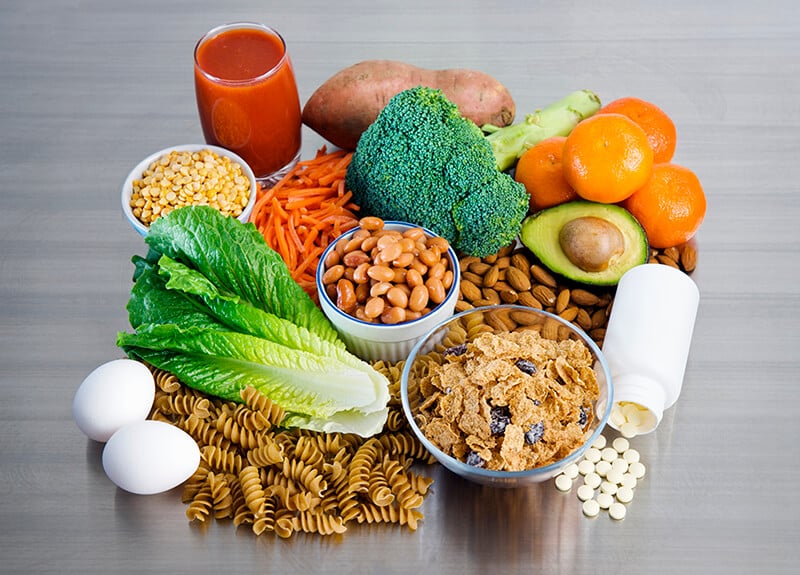In honor of the National Folic Acid Awareness Week that occurred earlier this month, the Grain Foods Foundation (GFF) would like to not only shed light on why folate is so important to individual health, but also share ways to implement folic acid into your daily diet:
Folic acid is a B vitamin (B9).
Called folate in its natural form and folic acid when it’s supplemented or used to fortify foods, both are important for your health. Since 1998, the U.S. Food and Drug Administration has required that folic acid be added to enriched grain products (such as bread, pasta, and ready-to-eat cereal) to help prevent early-stage pregnancy complications including neural tube defects such as spina bifida and anencephaly.
Folic acid fortification is a public health success!
According to the CDC, since the U.S. folic acid fortification requirement in 1998, the prevalence of neural tube defects has decreased by 35%. That means there are approximately 1,300 fewer cases of neural tube defects each year, thanks to grain food folic acid fortification!
Women of childbearing age, especially Black women, are at higher risk for folate deficiencies.
- The National Institutes of Health (NIH) notes that while most people get enough folate, “women of childbearing age and non-Hispanic Black women, are at risk of insufficient folic acid intakes,” with 19% of female adolescents aged 14 to 18 years and 17% of women aged 19 to 30 years not meeting the estimated average requirement. 23% of non-Hispanic Black women had inadequate total intakes of folate.
- Neural tube development happens very early in pregnancy, often before a woman even knows she’s pregnant. That’s why a steady folic acid intake is so important for women in their childbearing years.
- According to the Office on Women’s Health, “Since about half of all pregnancies in the United States are unplanned, experts recommend all women get enough folic acid even if you are not trying to get pregnant.”
Grain foods are great sources of folic acid.
A good portion of the recommended daily amount of this nutrient can come from common enriched and fortified grain products, such as ready-to-eat cereal, bread, and pasta. The average American adult consumes approximately 140 micrograms of folic acid through ready-to-eat cereal. An adult’s daily goal should be at least 400 micrograms according to the CDC.
Know your stuff before you cut carbs.
Every year new fad diets emerge that call on Americans to reject eating carbs in favor of other types of food. However, eliminating this entire food group can negatively affect an individual’s overall health and result in them consuming minimal amounts of folic acid and other important nutrients. A 2018 Birth Defects Research study also found that “women with restricted carbohydrate intake were 30% more likely to have an infant with anencephaly or spina bifida.”
With all of this said, the best thing one can do for their health is to trust the advice of experts, doctors, and certified nutritionists. If you are interested in more information on folic acid consumption and grain foods, check out GFF’s website: GrainFoodsFoundation.org. Here you can find studies, science-based insights, and experts who can answer any question you might have about the nutrient.

